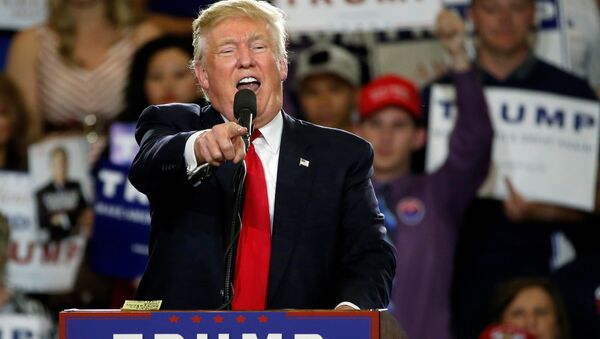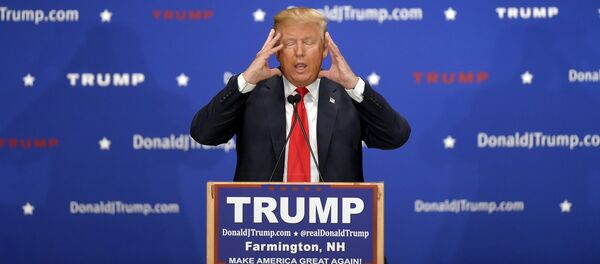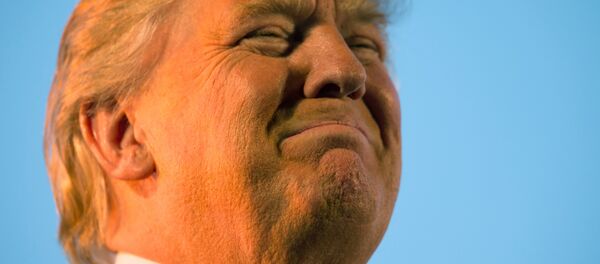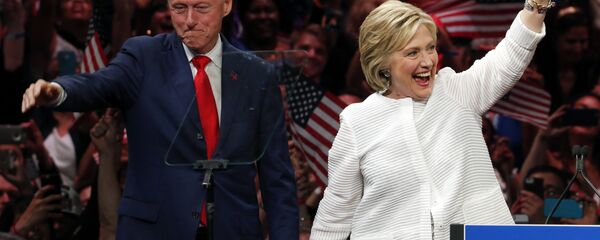There has been little if any doubt that Donald Trump will eventually win the Republican nomination for President of the United States, regardless of the controversial statements voiced by his political opponents within the GOP during the course of his campaign.
Still, as it turns out, Trump's stance on Russia and Ukraine differs greatly from that of the party's national security leaders.
Is Trump a 'Putin Apologist'?
"The Trump campaign worked behind the scenes last week to make sure the new Republican platform won't call for giving weapons to Ukraine to fight Russian and rebel forces, contradicting the view of almost all Republican foreign policy leaders in Washington," Rogin wrote Monday.
In fact Trump staffers have changed just a few words in an amendment proposed by Diana Denman, a platform committee member from Texas. The amendment called for increasing sanctions on Russia and providing "lethal defensive weapons" to Kiev.
However, the tone of the document was softened by the Trump team, which replaced the words "lethal defensive weapons" with "appropriate assistance."
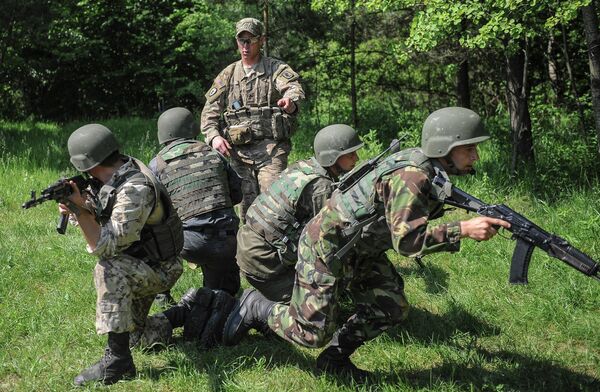
"He [Trump] simply doesn't see Russia as a dangerous threat," Rogin emphasized.
Predictably, the move has prompted The Weekly Standard, an American neoconservative magazine, to claim that "Trump and his advisors have shown signs of cozying up to Russia."
So, does Trump really bring grist for Russia's mill?
"There are advisors around Donald Trump who have long-standing business ties with Russia and who believe the sanctions are a dead-end," F. William Engdahl, an author and strategic analyst, told Sputnik.
"That being said, the larger problem is that every sound bite from Mr. Trump's lips is a calculated voter seduction, every one. He has tapped into a very deep current of American rage and frustration at Washington double-talk and frustration over the negative direction of the US economy over the past two or more decades. Those Americans are fed up with all these pointless wars-Iraq, Afghanistan, Libya, Syria… So he is trying to tap into that frustration while Hillary Clinton is the warhawk Par Excellence a la Libya," Engdahl underscored.
As for William Kristol's Weekly Standard, it is the recognized mouthpiece of the military industrial complex and their neocon lobby, the strategic analyst remarked.
Trump vs. Clinton: There is No 'Lesser Evil'
"I feel we come to better clarity if we do not speak of 'friends' when it comes to national interests. On that I have to agree with Lord Palmerston, [who said] nations have interests not 'friends.' The interests can be advanced in a friendly way but clear perceptions of what constitute Russia's true national interests, or America's true national interests are vital," Engdahl stressed.
"I understand how the Russian media would ask such a question with unstated hope that the nightmare of unwarranted sanctions and a vilification or demonization of Russia beyond belief would finally be ended. In my view it won't, at least anytime soon, and certainly not with a putative President Trump nor a putative President Clinton II," the strategic analyst continued.
"American deserves far better in my view, at least someone with the depth of a JFK," the author underscored.
"I must stress again, this is no ordinary election in the United States. The national infrastructure deficit has reliably been estimated at more than $3 trillion-bridges, water systems, highways, railroads, the electric grid-the very heart of any real economy," Engdahl pointed out.
The question then arises whether Donald Trump has worked out a plan to heal America's economic wounds.
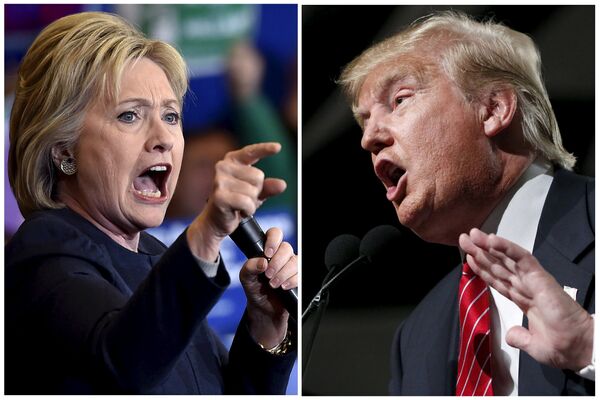
"Has Donald Trump set out a program to rebuild that? That could create millions of jobs and hundreds of billions in needed tax revenues. No he hasn't. Has Donald Trump outlined a program to clean up the Wall Street banking disaster and bring those responsible for it to justice after almost nine years of this nonsense? No," the author underscored.
The problem is that it is a part of human nature to desperately hope that out of two choices, one might be the "lesser of two evils," he notes. Unfortunately, this time in America, it isn't, according to Engdahl.
"The choice between war-waging Hillary, who would be facing criminal charges if it weren't for White House and FBI corruption, and the Casino Don, liar and political neophyte, Trump. That's like choosing between the Black Death and Cholera. Both will kill us," the author believes.
Trump and Russia: Nothing Personal, It's Just Business
And still there is a lot of fuss in the US media regarding Trump's alleged "pro-Russian" stance. The Washington Free Beacon reported on July 11 that Carter Page, a foreign policy adviser to Donald Trump, had traveled to Moscow.
In a speech he delivered at the New Economic School, Page "blamed the United States for 'mistakes' that have damaged US-Russian relations," the media outlet wrote, adding that the advisor "has a history of criticizing US foreign policy and portraying Russia in a favorable light."
Could we regard this visit as an attempt to build bridges between Washington and Moscow by the Trump camp?
The analyst says, "It's impossible at this point for me to say if he was there to build bridges for Trump. He was apparently not on an official Trump mission, but rather as a private businessman. Mr. Page knows Russia, has lived there as a businessman some years ago and has business dealings with Gazprom and other Russian companies, so presumably he has a more sober and better informed view of what is really going on in Russia."
According to Engdahl, Trump is using his pro-Putin remarks as a kind of selling point to gain additional political points and attract media attention.
"One thing you should be aware of in American psychology, we are the nation nurtured on John Wayne movies, Rambo, Terminator. That was, so-to-speak the 'mother's milk' for today's adult Americans. In their Hollywood-shaped world of perceptions, Vladimir Putin comes across to them as some kind of Super Rambo who takes no nonsense," he explained.
"For Trump to slyly let himself be even vaguely identified with a decisive world leader like Putin is a cheap way to gain more votes, all subliminal. I have spoken with so many fellow Americans from my vantage point here in Europe, who have said privately, 'If we only had a decisive President like Russia…' That's what Trump senses and is trying to opportunistically capitalize on," Engdahl highlighted.
However, "if you look closely at the people Trump has chosen, it is a mixed bag of some leading neo-cons and some realists," he remarked.
Trump is a hardheaded businessman and he has no affection for Russia or its leadership. As the saying goes, "Nothing personal, it's just business."
But what about Trump's changing the Republican security platform's amendment on Ukraine?
"This is not much of a dissent from the hawkish line on foreign policy, but it is a rejection of one of the more thoughtless and irresponsible foreign policy proposals out there," Daniel Larison of the American Conservative commented on the matter, adding that most of the Republican platform on foreign policy and national security remains as hawkish as ever.
"Nothing good for Ukraine or the US would come from sending them weapons," Larison stressed, adding "the Republicans that should be embarrassed by this episode are the ones that wanted to insist on throwing more weapons at a foreign problem."
